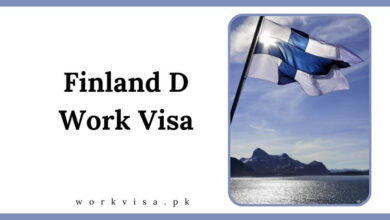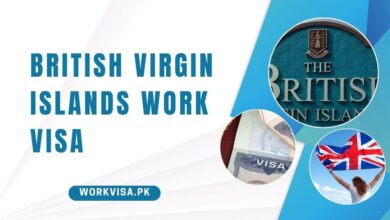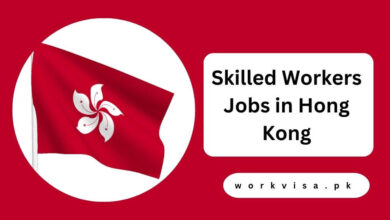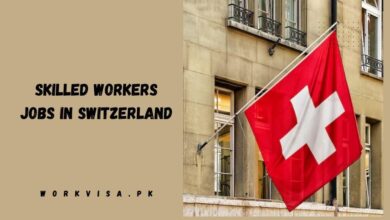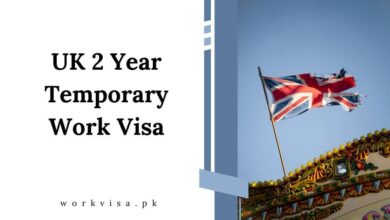Iceland Work Visa 2025 – Application Process
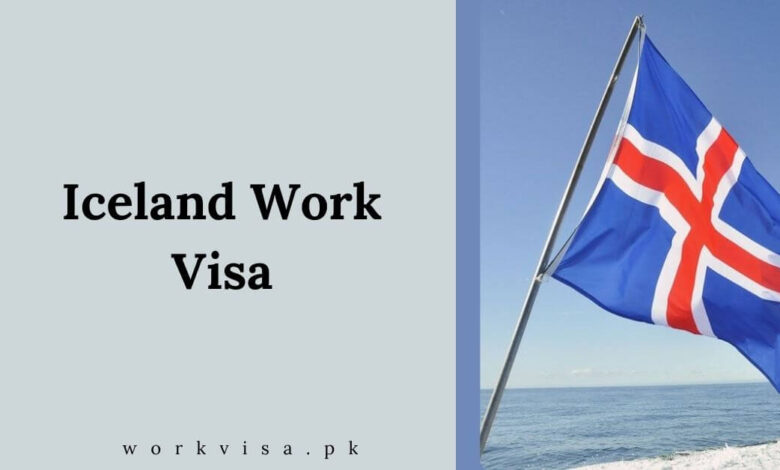
Are you considering a career move to Iceland? Known for its breathtaking landscapes, geothermal hot springs, and strong emphasis on sustainability, Iceland offers a high quality of life and unique work opportunities.
If you’re a non-European Economic Area (EEA) or European Free Trade Association (EFTA) citizen, obtaining a residence permit and work visa is a key step in making your move.
Check Also: Work Visa Jobs With Pension Plan – Permanent Residency
This guide will walk you through Iceland’s work visa options, eligibility requirements, and job market insights to help you successfully transition to working and living in this Nordic nation.
Why Work in Iceland?
1. Streamlined Work Visa Options
Iceland provides a range of work visa options to accommodate different professional needs. The process is generally straightforward, provided you have a confirmed job offer.
2. High Quality of Life
Iceland ranks among the safest and most sustainable countries globally. With low crime rates, a strong healthcare system, and stunning natural beauty, working in Iceland provides an excellent work-life balance.
3. In-Demand Skilnls & Job Shortages
Iceland has a growing demand for professionals in healthcare, IT, engineering, and tourism. If you have expertise in these fields, securing a well-paying and fulfilling job is highly possible.
4. Renewable Energy & Sustainability Focus
Iceland is a leader in clean energy, with nearly 100% of its electricity sourced from renewable sources. If you’re interested in sustainability-driven careers, Iceland is a prime destination.
Types of Iceland Work Visa 2025:
1. Residence Permit for Work
This permit is essential if you have a confirmed job offer from an Icelandic employer.
Eligibility Requirements:
- A valid job contract from an Icelandic employer.
- Proof of relevant qualifications and work experience.
- Compliance with Iceland’s immigration policies.
2. Temporary Work Permit
Issued for short-term jobs in sectors experiencing labor shortages, such as construction, specialized trades, and seasonal tourism work.
3. Long-Term Remote Work Visa (Digital Nomad Visa)
Introduced in 2020, this visa allows remote workers employed by foreign companies to live and work in Iceland for up to six months.
Eligibility Requirements:
- Employment with a non-Icelandic company.
- A minimum monthly income of ISK 1,000,000 (~USD 7,300).
- Proof of accommodation and health insurance.
4. Business Visa
For entrepreneurs looking to start or expand a business in Iceland. Requires a detailed business plan and proof of sufficient funds.
How to Find a Job in Iceland:
Finding work in Iceland requires proactive job searching through official job portals and recruitment agencies.
Top Job Portals:
- Vinnumálastofnun (Directorate of Labour) – Iceland’s official job search platform.
- EURES – Job listings for EEA/EFTA residents.
- Vinna.is – A comprehensive job board in Iceland.
- Alfred.is – Job postings in multiple industries.
Top Recruitment Agencies:
- Hagvangur – Specializes in professional career placements.
- Kollegi – Focuses on international job seekers.
- HH Ráðgjöf – Recruitment for IT and construction roles.
High-Demand Sectors in Iceland:
- Healthcare – Doctors, nurses, and specialists.
- Engineering – Electrical, mechanical, and civil engineers.
- IT & Software Development – Programmers, data analysts, and cybersecurity experts.
- Construction – Skilled tradesmen and project managers.
- Tourism & Hospitality – Tour guides and customer service representatives.
How to Apply for Iceland Work Visa 2025?
The application process is employer-driven, meaning your Icelandic employer must initiate the work permit application.
Application Steps:
- Employer Application Submission – Your employer applies through the Directorate of Immigration, detailing the job position and justification for hiring a foreign worker.
- Document Collection – You must provide:
- A valid passport.
- Signed work contract.
- Proof of qualifications and experience.
- Criminal background check.
- Visa Fee Payment – Costs vary but typically include:
- Visa application fees (€80–€90)
- Processing fees (€30–€50)
- Proof of financial means (~€29 per day, ~€145 per entry)
- Approval & Residency Registration – If approved, you must register with Icelandic authorities and obtain a kennitala (Icelandic ID number) for tax and healthcare purposes.
Conclusion:
Iceland is a fantastic destination for skilled professionals, offering strong job prospects, a high quality of life, and a sustainable environment. By understanding visa requirements and using job search resources effectively, you can increase your chances of securing employment and obtaining a work visa.
Key Takeaways:
- A valid job offer is required for most work visas.
- Remote workers can apply for a Digital Nomad Visa.
- Healthcare, IT, and engineering are the most in-demand fields.
- Using official job portals & recruitment agencies improves your job search success.
Ready to start your Icelandic job search? Explore official job portals, prepare your visa documents, and begin your journey to working in one of the world’s most beautiful countries!
Frequently Asked Questions:
-
Who needs a work visa for Iceland?
Non-EU/EEA citizens must apply for a work visa. EU/EEA citizens can work in Iceland but must register with the Directorate of Immigration if staying longer than three months.
-
Can I move to Iceland without a job?
There is no designated “job seeker visa” for Iceland. However, you can enter on a tourist visa and look for jobs. If hired, you can then apply for a work permit.
-
Is speaking Icelandic necessary for work?
While many Icelanders speak English, learning basic Icelandic improves job opportunities, especially in customer-facing roles.
-
What is the average salary in Iceland?
Salaries vary by industry, but the average monthly salary is around ISK 600,000–800,000 (USD 4,400–5,800).
